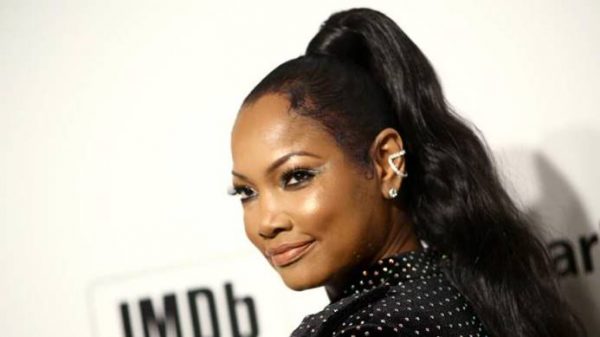*Anyone who works for a living knows that their money goes a lot quicker than the time it takes to earn it. And for low-to-moderate income workers, the costs of everyday living creep higher and quicker than pay raises or cost-of-living adjustments.
These and other kitchen table finance concerns are part of why so many consumers turned to the Consumer Financial Protection Bureau (CFPB) for help. Since 2011, CFPB returned $12 billion to more than 25 million consumers, remediating the harmful effects of unfair and deceptive practices, as well as discrimination in the financial services sector.
But with a change of administration and key personnel in 2017, CFPB’s monetary relief to consumers plummeted 96%. In real numbers, and according to the Consumer Federation of America (CFA), the leadership change went from an average restitution of $59.6 million per class action to $2.4 million on average per case. CFA also found that in 2018, the number of CFPB enforcement actions declined to only 11, compared to 55 in 2015.
This kind of abdication of public duty hearkens back to the pre-foreclosure financial practices that chose high and risky short-term profits over more modest gains and long-term financial stability. Yet a major demographic shift predicted by the Census Bureau may yet change the minds of financial power houses in recognition of a new reality: By 2044, the nation will be a majority minority nation. To put it another way, the profits of major financial institutions will be forced to recognize the untapped opportunities that accompany the growth of Black and Brown Americans.
A new research report, jointly published by UNIDOS US (formerly the National Council of La Raza) and PolicyLink, make the case for financial inclusion. Entitled, The Future of Banking: Overcoming Barriers to Financial Inclusion for Communities of Color, depicts America’s demographic shift as a new, win-win situation.
“For our nation and its economy to thrive, communities of color must access the opportunities they need to live healthy, economically secure lives and reach their full potential,” states the report. “This is no longer just a moral imperative – it is now crucial to the future of the American economy.”
I heartily agree.
As people of color emerge as a new and more colorful majority, the financial climate is ripe for an unprecedented level of access and opportunities for consumers. Corporate boards and CEOs alike must reckon with the future before them: just how much commerce they have historically ignored or underserved.
For example, according to the joint report, nearly 47% of Black households, and 43% of Latino households are either unbanked or underbanked. Nationwide, 63 million adults are unbanked. More than half of the 96 million people whose household incomes are less than 200% of the federal poverty guidelines are also people of color.
Unbanked households are ones in which no one has a checking or savings account. Underbanked connotes that someone in the household has a checking are savings account; but still use high-cost alternative financial services like pawn shops, payday loans, car-title loans, and rent-to-own stores.
There are also people whose employers do not offer direct deposit of their paychecks. If these workers do not have a checking account, they are forced to rely on fringe financial services.
“In 2017, the unbanked and underbanked low-to-moderate-income populations, and those with little or no credit history, spent more than $173 billion in fees and interest for alternative financial services,” states the report.
Anyone wondering how this huge sum of money could come from the pockets of the working poor and others, should remember the loan shark fees charged include a range of predatory lending practices ranging from overdraft fees to payday loans.
If however, Blacks and Latinos were to redirect that same $173 billion spent on triple-digit interest and fees, imagine how family budgets could improve, and levels of community economic revitalization would not only change, but be sustained.
Equally important, it is high time that communities of color began valuing the collective purchasing power already in our hands.
Marisabel Torres, Senior Policy Analyst for UnidosUS, would phrase it another way. “Barriers to financial inclusion prevent people from fully participating in the American economy, and the data shows that minority communities struggle to access traditional banking products and services.”
Chris Brown, Director of PolicyLink agreed, adding, “Our findings help illuminate the path forward to banks, fintechs, regulators and others to collectively begin a race to the top — towards financial inclusion for all –by adequately serving the financial needs of the 63 million people who have been shoved to the sidelines of our economy.”
In order to develop a win-win economic climate, the UNICOS US-PolicyLink report offers several recommendations that include:
A credit rating system that works for all;
Increased products, accessibility and accountability for financial institutions to meet the needs of low-to-moderate income populations; and
Strengthened federal consumer protections for financial products.
“We are pleased to see this report call for stronger enforcement of existing federal consumer protections,” noted Nikitra Bailey, an EVP with the Center for Responsible Lending. “Coupling the proposed actions with more robust enforcement of fair lending laws would be a major change. Additionally, state consumer protections must be preserved. Together these actions can create a more inclusive financial playing field that ends the disparate outcomes produced in today’s system.”

Charlene Crowell is the Communications Deputy Director with the Center for Responsible Lending. She can be reached at [email protected].
Charlene Crowell
Deputy Communications Director
Center for Responsible Lending (CRL)
[email protected]
@CRLOnline
We Publish News 24/7. Don’t Miss A Story. Click HERE to SUBSCRIBE to Our Newsletter Now!







